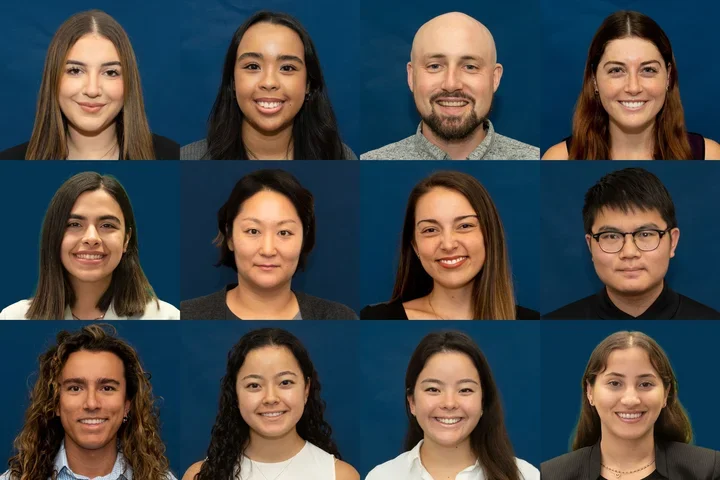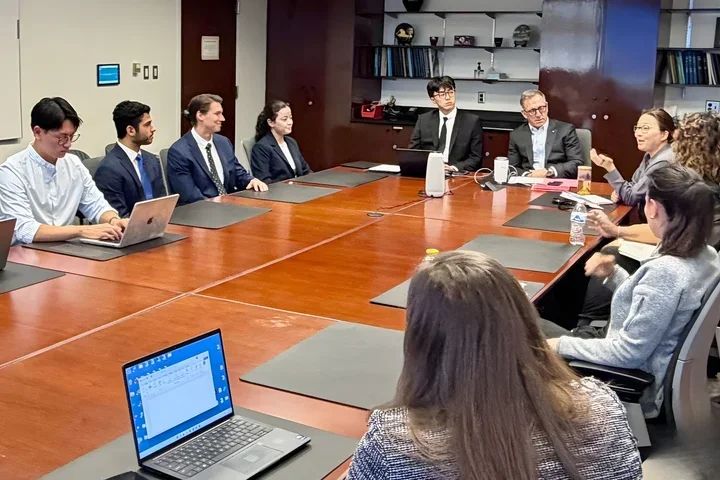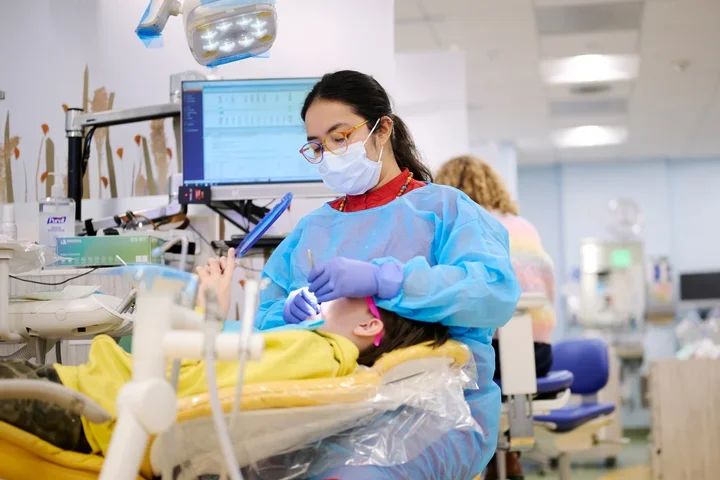ADA President Dr. Brett Kessler Inspires UCLA Dentistry Students with Vision for the Future
Oral and systemic health connection, and the need to increase cost-effective care for vulnerable populations among key messages in talk hosted by ASDA at UCLA.
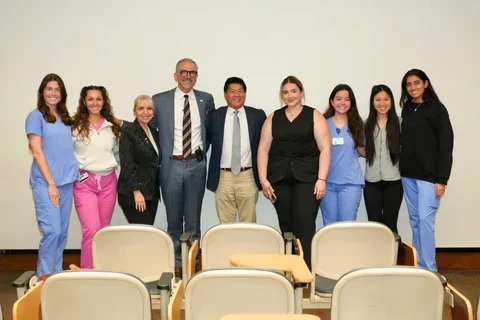
On Aug. 26, UCLA’s chapter of the American Student Dental Association (ASDA) and American Dental Association (ADA) Faculty Ambassador Dr. Elbert Tom welcomed ADA President Dr. Brett Kessler to campus, highlighted by a lunchtime lecture entitled The Future of Dentistry & The Power of Wellness.
As Dr. Kessler concludes his year-long term helming the largest professional organization representing dentists in the U.S., he is eager to engage future oral healthcare providers and encourage them to become personally involved with the ADA’s advocacy efforts.
Dr. Kessler’s hour-long talk began with a deeply personal story of overcoming early-career addiction thanks to trusted mentors, as well as the power of life and career coaching, both of which he still utilizes. As dentistry is a time- and physically demanding profession, he emphasized the importance of healthy practices outside of work. For Dr. Kessler, that involves endurance sports – including triathlons – and lifelong learning.
That segued into an exploration into dentistry’s evolving role in advancing overall health, pointing to a growing body of research showing the mouth’s connection to the body, and how oral health directly affects wellness, medical care costs, and even the broader economy.
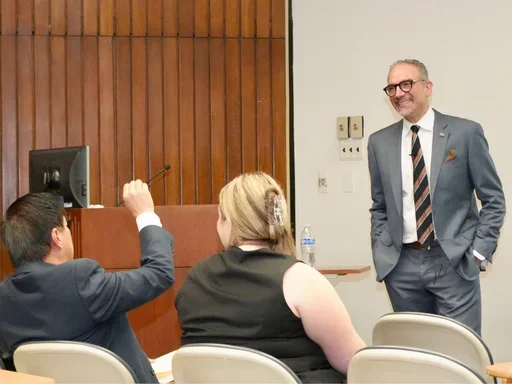
Dr. Kessler shared encouraging data showing historic gains in children’s oral health – particularly among low-income and nonwhite youth – with progress driven by expanded public coverage for pediatric dental care. At the same time, he underscored that outcomes for working-age adults have remained stagnant, with dental visits slowly declining and persistent disparities by income and race. Among seniors, modest improvements have been recorded, but largely among wealthier groups.
The most significant barrier, Dr. Kessler stressed, remains cost. Unlike most areas of health care, dentistry stands out for its affordability challenges, with adults—particularly those with lower incomes—facing the steepest hurdles to accessing care. Cost is the leading reason adults and seniors delay or forgo dental visits altogether.
According to Dr. Kessler, the current system of dental care delivery and financing works reasonably well for children and middle- to upper-income adults and seniors. However, substantial gaps remain for vulnerable populations, underscoring the need for continued innovation, policy reform, and professional advocacy.
“Less than 50% of the population actually sees the dentists,” he said pointedly. “Our obligation as professionals is to ensure that we find ways for those who can’t access care to access care.”
During the Q&A portion, students asked questions about the realities of studying and practicing dentistry. Namely, they pointed to the increasing cost of dental school and the shortage of dental hygienists in the U.S, which the ADA is addressing through structured financial support systems and regulatory changes, respectively.
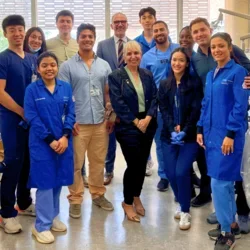
Dr. Kessler’s visit also included a tour of the School’s clinic and lab facilities by ASDA cabinet members and a visit with Dean and Professor Dr. Paul H. Krebsbach. He was accompanied by ADA Board of Trustees member Dr. Karen Irani.
“It was an absolute honor to welcome Dr. Kessler to the UCLA School of Dentistry. His insights on the future of dentistry and the importance of wellness reminded us of the responsibility we hold as future providers to care for both our patients and ourselves,” said ASDA at UCLA President Sharen Abi Nader, D.D.S. ’27. “I hope students walked away feeling inspired to lead with innovation, compassion, and balance in their professional journeys.”
As he prepares to resume his 30-plus years of clinical practice in Colorado, Dr. Kessler’s lecture left students with a deeper understanding of both the challenges and opportunities facing dentistry today, while encouraging them to embrace their future roles as providers, leaders, and advocates for a healthier society.
